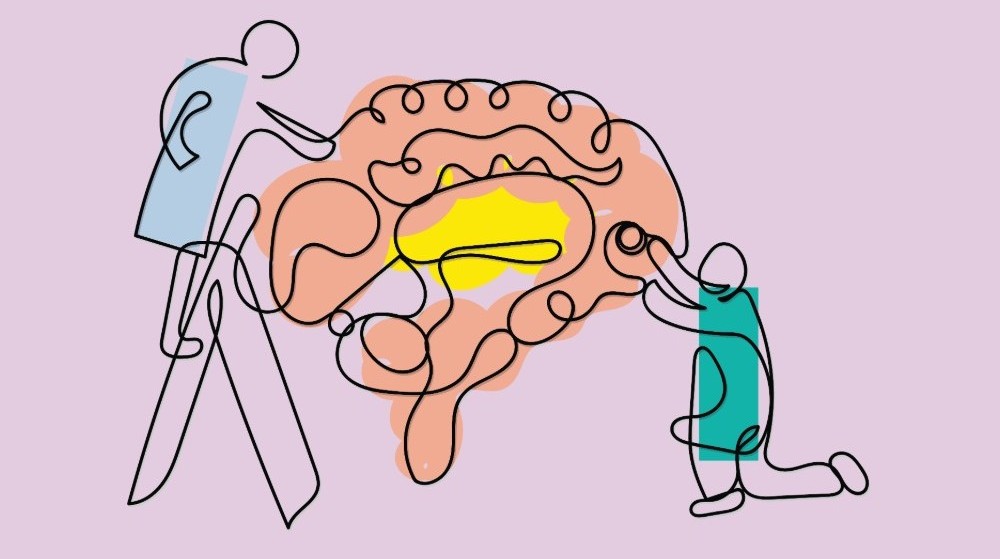The 16 Personalities Test: A Guide to Understanding Yourself

Take Eysenck’s Personality Inventory Online
Test YourselfThe sixteen personalities test represents one of the most widely used personality assessment frameworks in the world today. Based on the Myers-Briggs Type Indicator (MBTI), this comprehensive personality typing system categorizes individuals into sixteen distinct personality archetypes based on their preferences across four fundamental dimensions of human psychology. By understanding these patterns through taking a 16 personalities quiz, you can significantly enhance self-awareness, improve interpersonal relationships, and guide important life decisions from career choices to communication strategies.
Origins and Development of the MBTI
The Myers-Briggs Type Indicator was developed during World War II by mother-daughter duo Katharine Cook Briggs and Isabel Briggs Myers, who sought to apply Carl Jung's theory of psychological types to practical use. Their work resulted in the creation of what would eventually become one of the most popular personality test 16 personalities systems in history. Today, it's estimated that over 50 million people have taken some form of the MBTI assessment, with approximately 10,000 businesses, 2,500 colleges and universities, and 200 government agencies in the United States utilizing this personality framework.
While the original MBTI assessment is published by the Myers-Briggs Company in both paper and online formats, newer assessments have built upon and expanded the theory, making the 16 personality test for free more accessible to people seeking deeper insights into their psychological preferences and tendencies.
The Four Key Dimensions Explained
- Extraversion (E) vs. Introversion (I): Where You Focus Your Energy
The first dimension describes where individuals direct their attention and derive their energy. Extraverts (E) draw energy from the external world of people, activities, and things, preferring to act first and reflect later. In contrast, introverts (I) derive energy from their internal world of ideas, reflections, and solitude. Many people discover this fundamental aspect of their personality when they take a free personality test 16 personalities assessment, which helps explain why some people feel energized in social settings while others need solitude to recharge. - Sensing (S) vs. Intuition (N): How You Process Information
The second dimension addresses how individuals perceive and gather information from the world around them. Sensing (S) types rely primarily on concrete, observable details and facts that can be directly experienced through the five senses. They tend to be practical, present-focused, and attentive to specific details rather than abstract concepts. The 16 personality free test reveals that Intuition (N) types, by contrast, are drawn to patterns, possibilities, and the bigger picture beyond what is immediately observable. They are typically future-oriented, focusing on what could be rather than what currently exists. - Thinking (T) vs. Feeling (F): How You Make Decisions
When you take the 16 personalities free test, you'll discover your preference in the third dimension, which addresses decision-making processes. Thinking (T) types approach decisions with a preference for logical analysis, objectivity, and impartial reasoning. They tend to detach themselves emotionally from decisions to maintain objectivity. Feeling (F) types make decisions primarily based on personal values, empathy, and consideration of how choices will affect people. Both approaches represent valid decision-making methods, each with distinct strengths in different contexts. - Judging (J) vs. Perceiving (P): How You Approach the Outside World
The fourth dimension reveals how individuals prefer to interact with their external environment, particularly regarding structure, planning, and lifestyle preferences. Judging (J) types gravitate toward organization, structure, and closure in their dealings with the outside world. People who complete a 16 personality types free test and discover they have a Perceiving (P) preference typically approach life with a desire for flexibility, spontaneity, and openness to new experiences. They usually resist rigid structures and fixed plans, preferring to keep their options open and adapt to circumstances as they unfold.
Understanding the 16 Personality Types
The interplay of these four dimensions creates a matrix of sixteen distinct personality types, each represented by a four-letter code. Modern 16 personality types quiz assessments help identify which of these sixteen types best matches your preferences and tendencies. For example, an INTJ combines Introversion (preferring the inner world), Intuition (focusing on patterns and possibilities), Thinking (making decisions based on logic), and Judging (preferring structure and closure). Similarly, an ESFP combines Extraversion (focusing on the outer world), Sensing (attending to concrete details), Feeling (making decisions based on values), and Perceiving (preferring flexibility and spontaneity).
It's important to recognize that these sixteen types represent preferences rather than abilities or rigid categories. The 16 personalities quiz for free results should be viewed as insights into your natural tendencies rather than limitations. No type is inherently better or worse than any other, and individuals of any type can develop skills and competencies in areas that don't come naturally to them.
Applications in Personal and Professional Life
The 16 personality types test offers valuable applications across numerous life domains, with career guidance representing one of its most prominent uses. Different personality types naturally gravitate toward different work environments, tasks, and professional roles based on their preferences. For instance, extraverted types might thrive in collaborative, people-oriented roles, while introverted types might excel in positions offering independence and depth of focus.
Beyond career applications, the results from a 16 types personality test provide powerful tools for enhancing interpersonal relationships and communication. By recognizing different personality preferences, individuals can adapt their communication style to better connect with others whose processing and interaction styles differ from their own. This improved interpersonal understanding can benefit family relationships, friendships, romantic partnerships, and professional collaborations by reducing misunderstandings and appreciating diverse strengths.
Ready to discover your personality type? Take our 16 personality quiz for free today and gain valuable insights into your natural preferences and tendencies!
Scientific Status and Criticisms
Despite its widespread popularity and application, the MBTI has faced scientific scrutiny regarding its validity and reliability as a psychometric instrument. While millions of people take the 16 personality types test each year and find value in the results, critics have raised concerns about poor validity (whether it measures what it claims to measure) and poor reliability (consistency of results over time).
Questions of research independence and potential bias further complicate the scientific status of the MBTI. Most of the research supporting the MBTI's validity has reportedly been produced by the Center for Applications of Psychological Type, an organization run by the Myers–Briggs Foundation. Despite these criticisms, people continue to seek out and benefit from taking a 16 personalities test for free to gain insights into their preferences and tendencies.
Conclusion
The 16 personalities test offers a structured framework for understanding psychological preferences across four key dimensions. Through its sixteen distinct personality types, each represented by a four-letter code, the system provides insights into how people focus their energy, gather information, make decisions, and approach the external world. While facing scientific criticisms, the framework continues to be widely used for enhancing self-awareness, improving communication, and guiding career decisions.
Understanding one's own preferences and those of others through taking a 16 personality types free test can foster greater empathy, more effective communication, and strategic personal development. The framework encourages recognizing and appreciating diverse approaches to processing information and making decisions, potentially reducing conflict and misunderstanding in both personal and professional relationships.
As with any personality framework, the greatest value of the 16 personalities model comes not from labeling or limiting individuals, but from opening conversations about diverse ways of experiencing and navigating the world. Whether you're looking for personal insight or professional development, taking a comprehensive 16 personalities free test can be a valuable first step toward greater self-understanding and more effective interactions with others.
References include Wikipedia, Indeed.com, AssessTM, CrystalKnows, and BecomeDamnGood.
